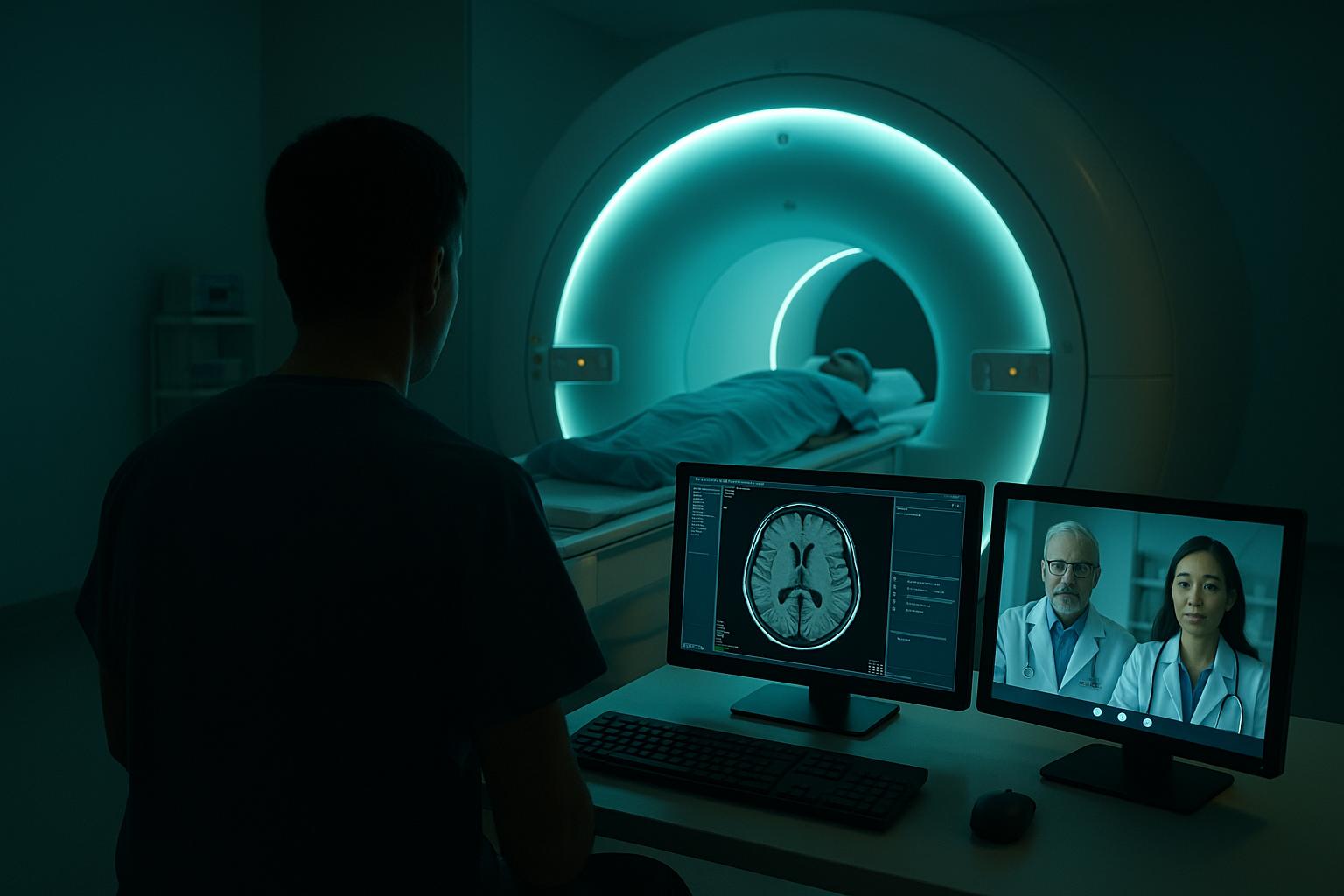An innovative pilot scheme by Imperial College Healthcare NHS Trust in London suggests that extending the operation of MRI scanners into off-peak evening hours can significantly reduce patient waiting times and improve attendance rates without the need for additional on-site staff. The study, conducted in partnership with technology firm Philips, demonstrated that by running MRI services for 12 to 16 hours per day across five days a week, the trust was able to scan an extra 1,356 patients over a six-month period. This approach also saw a striking fall in missed appointments, or “did not attend” (DNA) rates, which dropped from the typical 5-7% to just 1.1%.
The trust reported that 90% of patients were now receiving their scans within three weeks of referral, marking a considerable improvement in diagnostic wait times. The success of the pilot was largely attributed to the use of Philips’ Radiology Operations Command Centre (ROCC) technology, which enables experienced radiographers to remotely support colleagues on site through live audio, video, and chat functions. This allowed senior specialists to guide junior staff operating the scanners from a distance, optimising workforce allocation without the need for additional personnel physically present with the machines.
By utilising ROCC, the trust was able to "double the number of radiology staff that we can train," according to Philip Gregory, an imaging practice educator at Imperial. The platform’s unique ability to view and manage multiple scanners across different sites during extended hours also allowed for safer and more efficient training sessions, enhancing staff development alongside expanded patient capacity. Evening scanning sessions were focused on simpler examinations, reserving more complex cases for daytime hours.
Mark Leftwich, managing director of Philips UK and Ireland, highlighted a growing national shortage of diagnostic radiographers, which has contributed to bottlenecks and longer waits for diagnoses within the NHS. He suggested that remote support technology and extended scanning hours could be transformative, potentially paving the way for future 24-hour scanner operations. However, he emphasised the need to prioritise digital infrastructure and workforce support to sustain improvements in care.
While the extension of scanning hours has clear benefits, challenges remain. Dr Stephen Harden, president of the Royal College of Radiologists, noted that increasing the volume of MRI scans also requires more radiologists to interpret the results—a critical bottleneck given the current shortage of nearly 2,000 radiologists in the UK. He stressed that without an increase in trained specialists, faster scanning might not translate to quicker diagnosis and treatment for patients. He urged the government to invest in training more radiologists to prevent delays in delivering scan results.
The pilot ran from January through July 2025 at Imperial’s Community Diagnostic Centre in Wembley, where remote MRI scanning was initiated using the ROCC platform. In its first month, the extended service saw 306 additional patients between 8 pm and midnight, accompanied by very low DNA rates and positive patient feedback regarding appointment availability and staff support. The trial demonstrated the potential for combining advanced digital tools with flexible staffing models to alleviate NHS diagnostic pressures in a cost-effective manner.
This innovative approach not only addresses capacity issues but also offers a pathway to improve workforce training and work-life balance, as staff can provide expert oversight remotely, reducing the need for physical presence during extended hours. If scaled, it could help the NHS meet rising demand for diagnostic imaging and shorten backlog-driven waiting times, while maintaining high standards of care.
📌 Reference Map:
- Paragraph 1 – [1], [2], [4]
- Paragraph 2 – [1], [4], [6]
- Paragraph 3 – [1], [4], [5]
- Paragraph 4 – [1], [6]
- Paragraph 5 – [1]
- Paragraph 6 – [1], [3], [7]
- Paragraph 7 – [1], [3], [6]
Source: Noah Wire Services
